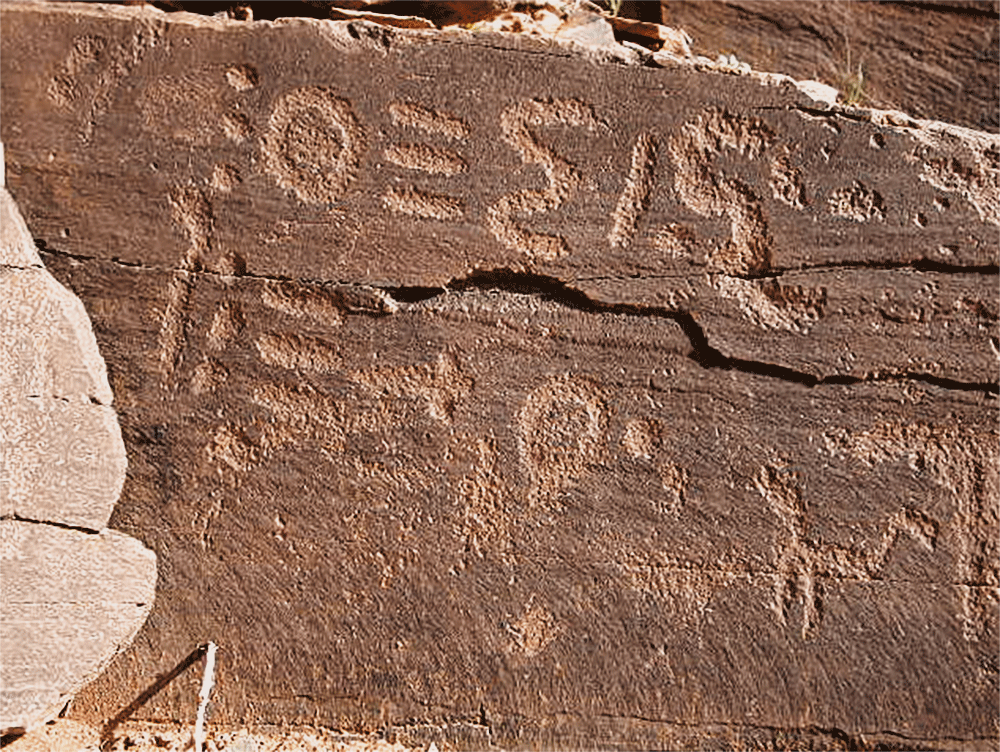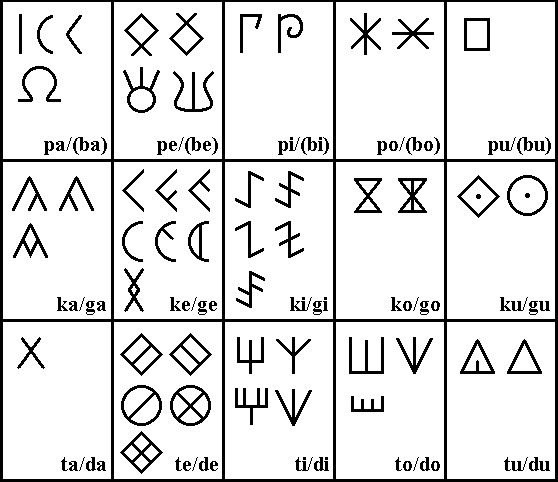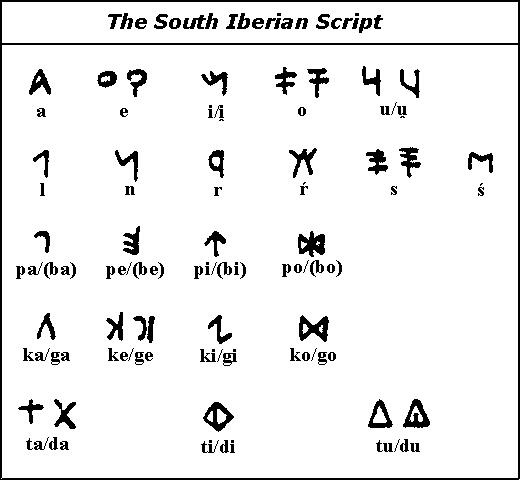Tifinagh is the writing system developed and used indigenously in North West Africa. It is used to write Berber languages such as Tamazight, Tamajaq, Tamasheq, Amazigh, and some Hausa dialects which are spoken by about a million or so people in Morocco, Niger, Nigeria, Mali, Burkina Faso, Algeria and Libya.
Berber/Tuareg/Hausa Script

Compare with:
North East Iberian Script

Compare and contrast with the Nsibidi script of the Nigerian Igbos.
Igbo Script Nsibidi

Nsibidi or Nsibiri is an ancient writing script used by the Igbos of Nigeria, and their neighbours the Ibibios and the Akangs. Remnants of the written scripts survive today. It’s use is mostly found among the secret cultic schools which still survive in Eastern Nigeria. It is also used in the Caribbeans where it was taken by the Africans who were enslaved and used by western imperialism to build the Americas. It can be found still in Cuba, Jamaica and Haiti, Venezuela and as far as Brazil.
The results of a comparative between Iberian and Nsibiri is singularly striking. It raises an irresistible inference of solid and sustain contacts between the two culture.
Nsibidi Script
Compare and contrast.
South Iberian Script

Iberian scripts have been found on the Iberian peninsula, in southern France and on the Balearic Islands. The oldest known inscriptions date from the 4th century BC. The scripts are thought to have been derived from the Punic alphabet.
The Iberian type of script has been found in the Iberian peninsula, in southern France and in the Balearic Islands. The oldest date of ancient Iberian writing has been dated to the 4th century BC. Due the Roman invasions in the 3rd century BC, the script and the language from which it was written in were replaced with Latin writing and speech


@Eyo Don’t you find d ‘Efik edi mbakara’ phrase as painting the Efik heritage as that of ‘wannabes’, people who copied their colonial master’s customs so much so that they lost their origin in terms of mannerisms and costume? At least you know d Efiks settled in Uruan(ibibio) before proceeding to this present location in Calabar and it’s environs in d course of their migration.
You speak of wanna be’s, look around you today. Aren’t we all? Have we not lost almost all of our history and “mannerisms”. The Ekpe and Nsibidi as I see here are now attributed to the Ibibios and yet they have remained in use today not by them however but by the Efik who have “lost their mannerism”. I’m simply speaking from what I see. Even the very history some have quoted here was read from somewhere. Do we know who wrote it. Do we know the truth for ourselves? Which is a dialect of which? There are many questions we don’t have answers for.
That aside. As an Efik myself, I personally dislike the “Efik edi Mbakara” phrase even though I believe it had much to do with modernisation and advancenent of the people. I also think it was a foreshadowing of the state of things in the future. The future we all now live in. A lot of us are fascinated by all things having to do with them. I’m usually positively shocked to hear how well spoken in English some of my grand fathers here are. But I think it’s been taken too far. Our children (not just in Calabar where I live) cannot speak our languages. They have no idea or interest in the culture. Soon enough many of our languages will be extinct. I think a lot of us would agree that this is true. I am a victim myself.
Thing is, I don’t think these mbakara liked any of us very much. At least not enough for us to want to become them and lose ourselves. I believe it is this same bickering, figjting and disunity that allowed them to divide and use us anyway they saw fit. And we still continue today. It plagues the whole country. While we continue to argue , let us be aware that these conflicts produce disunity and that in turn hinders our growth. We are in this country together as it is.
Origin of Nsibidi
1909 J. K. Macgregor who collected nsibidi symbols claimed that nsibidi was traditionally said to have come from the Uguakima, Ebe or Uyanga tribes of the Igbo people, which legend says were taught the script by baboonsgin Of Nsibidi.
Another school of thought believes that the origin of nsibidi is most commonly attributed to the Ejagham people of the northern Cross River region, mostly because colonial administrators found the largest and most diverse nsibidi among them.
Quantity of nsibidi materials excavated were used by Europeans to determine the origination. That do not sound very scientific and run contrary to tools for determination of archaeological foundlings.
Whether Igbo or Ejagham people, it belongs to the people of South eastern Nigeria.
i am more interested in seeing that the symbols are saved for posterity…
the fact remains that it is for south eastern origin which the Igbo and Efik or Ibibio are part of.